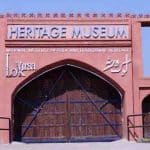Credit: BORGEN Magazine SEATTLE, Washington — Pakistan ranks second lowest in the world for gender equality, placing at number 148 out of 149 countries. The nation ranked 146 in economic participation and opportunity and 97th in political empowerment. In an effort to work towards greater female empowerment in Pakistan, international humanitarian organizations are working with Pakistani women. Organizations UNDP and U.N. Women are creating initiatives to support greater political and economic equality.
UNDP Supports High Altitude Farming
In the Pakistan territory of Gilgit-Baltistan, harsh mountain terrain makes it difficult for families to grow enough food to support themselves. It becomes especially difficult in the winter. In response, UNDP came up with a solution that helps tackle food insecurity and empower women. It has provided tunnel farms that are owned and run by local women. Tunnel farms are plastic, hooped greenhouses that protect crops from winter weather. These farms give the region access to fresh vegetables throughout all seasons.
By placing the tunnel farms in the hands of women, UNDP is supporting economic empowerment for women in the region. The women are able to make money for themselves and their families by selling the vegetables they grow in local markets. Between January and April 2019, these women were able to grow approximately 16,500 seedlings in the tunnels. Each tunnel earned approximately $247 for its produce. This income supports women, families and communities. The tunnels are an important step toward greater female empowerment in Pakistan.
UNDP Provides Training to Rural Women
In the Sultan Shah village in the Noshki district of Pakistan, UNDP is taking a different approach to helping women become economically empowered. The district suffers from severe poverty. Women often need to find employment to make ends meet for their families. Due to a lack of employment opportunities in the village, many need to travel long distances to find work.
Bibi Hajra, a recent widow, walked hours each day to be a domestic worker for wealthier families and was still not making enough to adequately support her family. She stated, “The houses where I worked were a long distance away from my own home. Each day, by the time I reached the neighbourhood, I was already exhausted — my actual job of cleaning the houses still lay ahead of me,” she said.
In response to the difficulties faced by these women, UNDP supported a stitching center to train women in marketable embroidery and sewing skills. Though this initiative is on a fairly small scale, it reflects the importance of addressing the specific needs of women in different contexts. The stitching center has had a significant impact on women in the Sultan Shah village. Bibi Hajra now making enough money to adequately support her family without traveling.
U.N. Women Fights for Equal Employment Opportunities
U.N. Women is also committed to supporting female empowerment in Pakistan. Recently, they worked with the local energy company Engro Energy Limited (EEL) to ensure equal employment opportunities for women in Sindh, Pakistan. Being rich in natural resources, there has been a lot of development for local energy companies over the past few years. This has increased employment opportunities for both men and women. Women are now working “unconventional” jobs, including transport, entrepreneurship and engineering.
EEL has committed to supporting female employment by signing the “Women’s Empowerment Principles.” These principles formally agree to help women participate fully and equally in the job force. It is important to note that the company had already set a precedent for supporting women and giving them equal job opportunities. Many women have been working as truck drivers for the company. The agreement is another way to continuing EEL’s commitment.
One woman, Rukhsana, has benefited greatly from truck driving. She stated, “Through this driving training, I gained the strength and courage to face the world,” She added that the income has had a significant impact on her family’s well being, allowing her sons to attend school. She hopes to provide them will better opportunities in the future by enabling them to go to college. EEL hopes to recruit more female truck drivers and give them an opportunity to become economically empowered.
Women in Struggle for Empowerment
While giving women economic opportunities is undoubtedly a crucial step in achieving female empowerment in Pakistan, other initiatives take a different approach. Women in Struggle for Empowerment (WISE) was formed in 2001. It focuses on ensuring women are able to participate in the political process. Many women, particularly those in rural areas, are unable to vote because they have never registered for their National Identity Cards. In response to this, Bushra Khaliq, the leader of WISE, holds political participation workshops for rural women.
WISE is led by Pakistani women who have banded together to fight for social change. The women who attend the workshops are encouraged to defy pressure from their families and obtain a legal identity so that they can register to vote. To make this process easier, Khaliq brings in mobile vans that can register women for identity cards. In one district, they were able to get identification cards for 7,000 of 20,000 unregistered women.
Khaliq’s efforts accompany legal changes, including a 2017 law that requires a 10 percent female voter turnout in each district for the count to be legitimate. In 2018, there were 3.8 million newly registered Pakistani women voters. WISE is working to ensure even more women will be voting in the coming years.
These initiatives are crucial steps in working towards greater female empowerment in Pakistan. International humanitarian organizations like UNDP and U.N. Women along with local businesses and innovative Pakistani women must continue to develop initiatives that will improve the lives of women across Pakistan.
– Sara Olk
Follow the PNI Facebook page for the latest news and updates.









